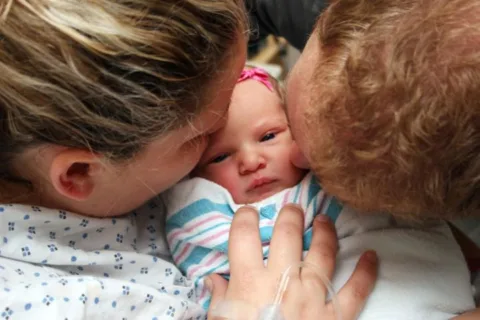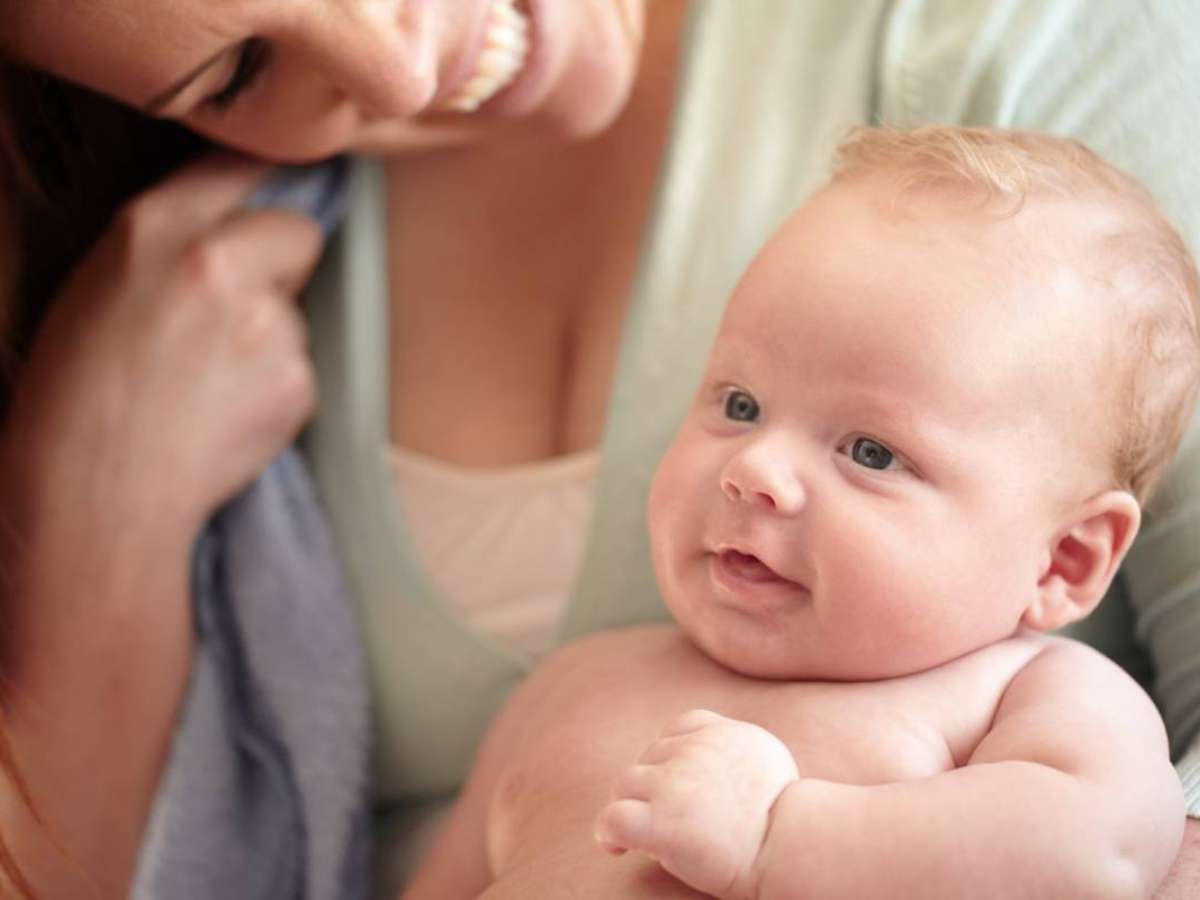Deciding to conceive a child after the agony of a miscarriage is a difficult and painful decision which is often accompanied by numerous doubts and fears.
As many as 10 to 25 percent of all pregnancies end in miscarriage — defined as a pregnancy lost before 20 weeks. (After that it is considered a stillbirth.) Most losses are due to abnormalities in the fetus. Other reasons include anatomic problems in the woman, such as an abnormally shaped uterus, a hormonal imbalance, or an infection of the genital tract. —Parenting Magazine
When considering a future pregnancy, the fear of another miscarriage is always on the minds of both the potential parents.
The psychological burden of becoming pregnant after a suffering a previous miscarriage is exceptionally high.
There’s no doubt about it, the mixed emotions that a new child elicits may be too much to handle. Your perception that a new pregnancy will be difficult after a miscarriage is quite justified.
Here are some tips for getting through the grief and preparing for another pregnancy…
Mixed Feelings With Pregnancy After Miscarriage
A new pregnancy after a miscarriage may be viewed as a new beginning if it happens after the mourning period and you have come to terms with the tragedy.
However, the joy of a new pregnancy after a miscarriage could also be accompanied by feelings of guilt over the deceased child.
In addition to this guilt, the new pregnancy may be overshadowed by a constant fear of suffering another miscarriage.
The child’s birth at the end of the period of gestation will no doubt stir up all of those negative and upsetting emotions that you felt while mourning for your miscarried baby.
For some pregnant women, feeling joy is a psychological luxury they can’t afford. These are women who after one, sometimes many, miscarriages, stillbirths or newborn deaths, are pregnant again. To protect themselves from another potential crushing emotional blow, it is easier to think of their pregnancy as an impersonal biological condition. They are not, in fact, “expecting a baby.” There are no joyous baby showers. Mainly there is anxiety. —Science Daily
Dad’s Feelings vs Mom’s Feelings
Nobody would deny that it is, indeed, possible for a man to be even more upset about a miscarriage than a woman. Nevertheless, the physical side of pregnancy and the
subsequent loss of a child may have a far deeper and more lasting effect on the woman than it does on the man.
This may make a new pregnancy more emotionally difficult for the woman than she first imagined. Many women become pregnant before they have fully come to terms with the loss of their child. Subsequently, a new pregnancy brings unexpected emotional turmoil and suffering – consequences the woman was not expecting.
Therefore, the support of her partner and family is extremely important during a new pregnancy.
Women who named their deceased baby prior to the miscarriage may feel guilty if they consider naming the new baby with the same name. Quite often, the woman will choose a different name for the new child, so as to avoid offending the memory of her miscarried child.
Exactly how long a woman should wait to conceive after a miscarriage is controversial. Some doctors suggest trying again as soon as possible, while guidelines from the World Health Organization (WHO) call for waiting for at least six months, and others suggest waiting for as long as 18 months. The new study included information on subsequent pregnancies achieved among 30,937 women who miscarried during their first pregnancy. The researchers did not have data about the cause of the miscarriage. Overall, women who became pregnant within six months of miscarrying had better outcomes and a lower risk of complications than their counterparts who waited longer to conceive after a miscarriage. Source
Getting Pregnant After A Miscarriage
Many times, the state of a woman’s wellbeing is enough of a factor that any deterioration may result in the body taking steps to biologically postpone conception. Women who are fragile or highly emotional have a smaller window of time each month in which they may successfully conceive.
This is due to the effect that stress, anxiety, and emotional turmoil have on a woman’s general state of health. As her general health deteriorates, so does her ability to conceive a child.
Another factor which affects both men and women is the belief that a future pregnancy may cause another miscarriage:
- In men, this has been known to trigger erectile dysfunction and/or a subsequent drop in libido.
- In women, it has been known to trigger an inability to become aroused and irregular menstruation.
If the cause of your miscarriages can’t be identified, don’t lose hope. Even without treatment, about 60 to 70 percent of women with repeated miscarriages go on to have healthy pregnancies. — Mayo Clinic
To improve your odds of conceiving after a miscarriage, do these things:
- Stop smoking if you smoke.
- Take a folic acid supplement that has at least 400 mcg.
- Limit (or eliminate) caffeine and artificial sweeteners.
- Keep your exercise workouts in the light range; avoid strenuous workouts.
- Limit the amount of seafood you eat.
- Stop drinking alcohol.
- Lose weight if you are significantly overweight or obese.
- Schedule a preconception examination so your doctor can rule out infections that have the ability to interfere with conception or are dangerous to a pregnancy.
Dealing With The Fear Of Another Miscarriage
By working to understand the cause of your first miscarriage, you may alleviate the problems caused by a fear of a second miscarriage.
Although it may seem painful, researching into other known medical reasons for a miscarriage may be of help.
The better you both understand what is happening to the woman’s body, the more secure you will feel about its current condition. Remember, pregnancy is a time for the expectant mother to be happy and confident with the outcome of her pregnancy.
Any remaining fears may be alleviated through the observation of the evolution of the embryo via regular scans. This often sufficiently reassures both parents and allows you to remain optimistic about your new baby.
If there is still a risk of a miscarriage, regular consultation with your physician should help reduce any further risk.
Moreover, the routine observation of the mother and growing fetus by the physician and the midwife may positively contribute to the overall wellbeing of the expectant mother.
Bringing a life into the world should not be taken lightly. If you are still upset by your previous miscarriage, or feel as if you are not over the pain, then wait a little longer to conceive.
Both parents should both feel safe and secure with the idea of a new pregnancy. Rushing back into conceiving a child to cover the pain of a miscarriage is a recipe for dire consequences.
Make sure that both you and your partner are completely ready for another pregnancy before attempting to conceive again.
More Pregnancy After Miscarriage Advice
- Tips For Getting Pregnant After A Miscarriage
- Improving The Chances Of A Healthy Pregnancy After Miscarriage
- When To Get Pregnant After A Miscarriage
- Top 14 Pregnancy Fears (…And Why You Shouldn’t Worry)
- What To Expect With Your Pregnancy After A Miscarriage
- 10 Questions To Ask Your Doctor After A Pregnancy Loss
- Trying To Get Pregnant Again After A Miscarriage
This is a guest post by an author who wishes to remain anonymous.





